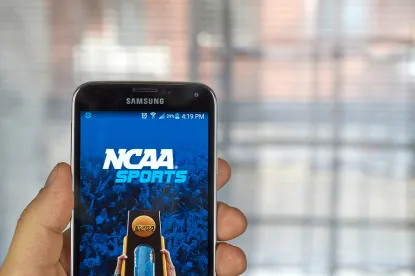While Major League Baseball and the NFL often speak of growing revenue, Esports has enjoyed a meteoric rise in popularity and an accompanying increase in revenue streams of its own. Buoyed by investments into Esports organizations from international stars like Michael Jordan and Drake, and the increasing popularity of Esports stars like Tyler “Ninja” Blevins and his gaming streams to millions of fans on Twitch, 2018 was a record-breaking year for the Esports industry. As revenue grew an estimated $900 million, estimates show that the industry that got its start in a dimly lit home basement could grow to a whopping $1.7 billion by 2021.
However, as with any industry that is experiencing unprecedented growth, numerous legal issues and concerns accompany that growth. As an emerging sport, Esports lacks formal organization amongst the many games within which players compete. Only recently have leagues developed, such as the Overwatch League and even then, teams are unaware or unsure of the many developing legal issues. Specifically, labor and employment issues are plentiful when it comes to players, their teams, the team owners, and the multitude of other parties that are involved. The following list is just a snapshot of the legal issues that the Esports industry faces in the coming years.
- FLSA
- Are a team’s players independent contractors or employees covered by the FLSA? Team owners must be aware that the potential relationship with players must be analyzed pursuant to current legal tests such as the “economic realities” test to make such a determination.
- Child Labor
- It is not uncommon for top-tier competitors to be below the age of 18 in the Esports industry. Federal and state child labor laws must be considered as they govern the employment of minors.
- Title VII
- Employment anti-discrimination laws, such as Title VII and its state counterparts, bar discrimination based on race, color, religion, sex, national origin, and other characteristics.
- NLRA
- The NLRA guarantees the right of employees to organize and bargain collectively with their employers, and to engage in other protected concerted activity. Recently, Riot Games launched a League of Legends North American League Championship Series players association to give its professional players a voice in negotiations between players, teams, and Riot Games. While the association is not yet a union under the NLRA, the NLRA will govern should real talks of unionization continue to grow. All Esports team owners must become familiar with the legal rights that they possess as well as the legal rights of the professional players.
- Gambling
- By 2020, the total value of money/items wagered around major Esports titles is projected to be valued at $12.9 billion. While there is currently a lack of regulation with respect to Esports match fixing, some Esports stakeholders have come together to deal with issues of common interest such as match fixing and to protect the integrity of the sport.
- Player Contracts
- As with all major professional sports, increased revenue generation will lead to increased focus on contract negotiations and the potential terms contained on those agreements. Players and team owners should be aware of and take into account federal and state employment law issues when drafting player contracts.
- Team Handbooks and Policies
- Policies, procedures, and standards for the team workplace should set expectations and comply with appropriate league codes of conduct and competition.
- Immigration Issues
- Many Esports professionals are not based in the US. Team owners recruiting foreign players onto their teams must comply with all U.S. immigration laws, such as securing the appropriate visa for each foreign player.
- Athlete-Agent Laws and Regulations
- Agents and organizations representing athletic talent must navigate a broad array of federal and state laws and regulations governing the sports industry and team owners will need to be able to navigate the multi-tiered regulatory environment.
- Team Doping
- While Esports players aren’t injecting themselves with steroids, players have admitted to abusing amphetamines such as Adderall when competing in tournaments in order to improve their reflexes and concentration. The Electronic Sports League currently conducts random drug-testing at their events. Teams that want to enforce a drug testing policy for their players need to be cautious of the Americans with Disabilities Act, which has recognized Attention Deficit Disorder under the act.




 />i
/>i

